231 results found for 'Model'. Prev |1|2|3|4|5|6|7|8|9|10 | Next | View 100 per page
Low relevance matches: 109 other results may be of interest to you. Show low relevance matches
Atomic Models - All matter is made of atoms which are composed of protons, neutrons and electrons; natural radioactivity arises from the decay of nuclei in atoms ACSSU182 Year 9 Physical Sciences
Energy Transfer - Energy transfer through different mediums can be explained using wave and particle models ACSBL029 Year 11 Biodiversity and the interconnectedness of life
Ecosystem dynamics - Models of ecosystem interactions (for example, food webs, successional models) can be used to predict the impact of change and are based on interpretation of and extrapolation from sample data (for example, data derived from ecosystem surveying techniques ACSBL085 Year 12 Heredity and continuity of life
DNA genes and the continuity of life - Frequencies of genotypes and phenotypes of offspring can be predicted using probability models, including Punnett squares, and by taking into consideration patterns of inheritance, including the effects of dominant, autosomal and sex-linked alleles and mu ACSBL110 Year 12 Maintaining the internal environment
Homeostasis - Homeostasis involves a stimulus response model in which change in external or internal environmental conditions is detected and appropriate responses occur via negative feedback; in vertebrates, receptors and effectors are linked via a control centre by n ACSCH018 Year 11 Chemical fundamentals
Properties and structure of atoms - Atoms can be modelled as a nucleus surrounded by electrons in distinct energy levels, held together by electrostatic forces of attraction between the nucleus and electrons; atoms can be represented using electron shell diagrams (all electron shells or val ACSCH032 Year 11 Chemical fundamentals
Properties and structure of materials - The characteristic properties of metals (for example, malleability, thermal conductivity, electrical conductivity) are explained by modelling metallic bonding as a regular arrangement of positive ions (cations) made stable by electrostatic forces of attra ACSCH056 Year 11 Molecular interactions and reactions
Intermolecular forces and gases - The shapes of molecules can be explained and predicted using three dimensional representations of electrons as charge clouds and using valence shell electron pair repulsion (VSEPR) theory ACSCH099 Year 12 Equilibrium acids and redox reactions
Chemical equilibrium systems - The relationship between acids and bases in equilibrium systems can be explained using the Brønsted Lowry model and represented using chemical equations that illustrate the transfer of hydrogen ions ACSCH103 Year 12 Equilibrium acids and redox reactions
Oxidation and reduction - A range of reactions, including displacement reactions of metals, combustion, corrosion, and electrochemical processes, can be modelled as redox reactions involving oxidation of one substance and reduction of another substance ACSCH104 Year 12 Equilibrium acids and redox reactions
Oxidation and reduction - Oxidation can be modelled as the loss of electrons from a chemical species, and reduction can be modelled as the gain of electrons by a chemical species; these processes can be represented using half equations ACSPH063 Year 11 Linear Motion and Waves
Linear motion and force - Newton’s Three Laws of Motion describe the relationship between the force or forces acting on an object, modelled as a point mass, and the motion of the object due to the application of the force or forces ACSPH076 Year 11 Linear Motion and Waves
Waves - A wave model explains a wide range of lightrelated phenomena including reflection, refraction, total internal reflection, dispersion, diffraction and interference; a transverse wave model is required to explain polarisation ACSPH139 Year 12 Revolutions in modern physics
Quantum theory - The Bohr model of the hydrogen atom integrates light quanta and atomic energy states to explain the specific wavelengths in the hydrogen spectrum and in the spectra of other simple atoms; the Bohr model enables line spectra to be correlated with atomic en ACSCH031 Year 11 Chemical fundamentals
Properties and structure of materials - The properties of ionic compounds (for example, high melting point, brittleness, ability to conduct electricity when liquid or in solution) are explained by modelling ionic bonding as ions arranged in a crystalline lattice structure with forces of attract ACSPH071 Year 11 Linear Motion and Waves
Waves - The mechanical wave model can be used to explain phenomena related to reflection and refraction ACSPH074 Year 11 Linear Motion and Waves
Waves - Light exhibits many wave properties; however, it cannot be modelled as a mechanical wave because it can travel through a vacuum ACSPH075 Year 11 Linear Motion and Waves
Waves - A ray model of light may be used to describe reflection, refraction and image formation from lenses and mirrors ACSPH140 Year 12 Revolutions in modern physics
Quantum theory - On the atomic level, energy and matter exhibit the characteristics of both waves and particles
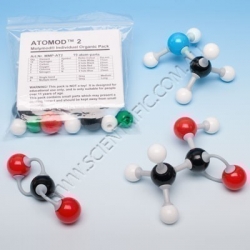
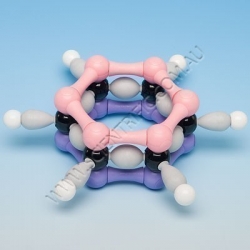
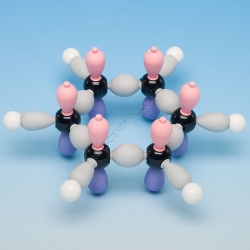
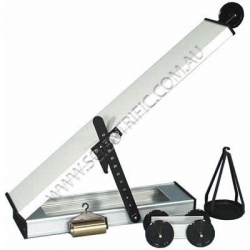
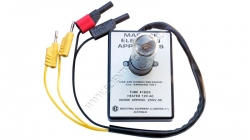
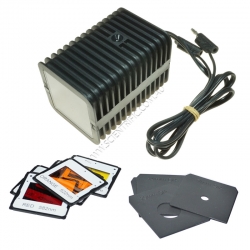
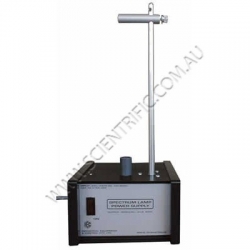
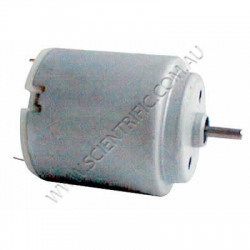
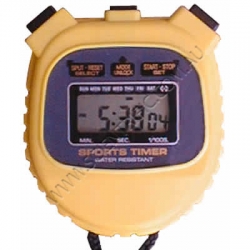
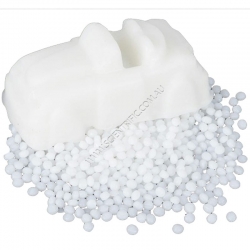
231 results found for 'Model'. Prev |1|2|3|4|5|6|7|8|9|10 | Next | View 100 per page
Low relevance matches: 109 other results may be of interest to you. Show low relevance matches
Curriculum resources related to 'Model'
ACSSU177 Year 9 Chemical SciencesAtomic Models - All matter is made of atoms which are composed of protons, neutrons and electrons; natural radioactivity arises from the decay of nuclei in atoms ACSSU182 Year 9 Physical Sciences
Energy Transfer - Energy transfer through different mediums can be explained using wave and particle models ACSBL029 Year 11 Biodiversity and the interconnectedness of life
Ecosystem dynamics - Models of ecosystem interactions (for example, food webs, successional models) can be used to predict the impact of change and are based on interpretation of and extrapolation from sample data (for example, data derived from ecosystem surveying techniques ACSBL085 Year 12 Heredity and continuity of life
DNA genes and the continuity of life - Frequencies of genotypes and phenotypes of offspring can be predicted using probability models, including Punnett squares, and by taking into consideration patterns of inheritance, including the effects of dominant, autosomal and sex-linked alleles and mu ACSBL110 Year 12 Maintaining the internal environment
Homeostasis - Homeostasis involves a stimulus response model in which change in external or internal environmental conditions is detected and appropriate responses occur via negative feedback; in vertebrates, receptors and effectors are linked via a control centre by n ACSCH018 Year 11 Chemical fundamentals
Properties and structure of atoms - Atoms can be modelled as a nucleus surrounded by electrons in distinct energy levels, held together by electrostatic forces of attraction between the nucleus and electrons; atoms can be represented using electron shell diagrams (all electron shells or val ACSCH032 Year 11 Chemical fundamentals
Properties and structure of materials - The characteristic properties of metals (for example, malleability, thermal conductivity, electrical conductivity) are explained by modelling metallic bonding as a regular arrangement of positive ions (cations) made stable by electrostatic forces of attra ACSCH056 Year 11 Molecular interactions and reactions
Intermolecular forces and gases - The shapes of molecules can be explained and predicted using three dimensional representations of electrons as charge clouds and using valence shell electron pair repulsion (VSEPR) theory ACSCH099 Year 12 Equilibrium acids and redox reactions
Chemical equilibrium systems - The relationship between acids and bases in equilibrium systems can be explained using the Brønsted Lowry model and represented using chemical equations that illustrate the transfer of hydrogen ions ACSCH103 Year 12 Equilibrium acids and redox reactions
Oxidation and reduction - A range of reactions, including displacement reactions of metals, combustion, corrosion, and electrochemical processes, can be modelled as redox reactions involving oxidation of one substance and reduction of another substance ACSCH104 Year 12 Equilibrium acids and redox reactions
Oxidation and reduction - Oxidation can be modelled as the loss of electrons from a chemical species, and reduction can be modelled as the gain of electrons by a chemical species; these processes can be represented using half equations ACSPH063 Year 11 Linear Motion and Waves
Linear motion and force - Newton’s Three Laws of Motion describe the relationship between the force or forces acting on an object, modelled as a point mass, and the motion of the object due to the application of the force or forces ACSPH076 Year 11 Linear Motion and Waves
Waves - A wave model explains a wide range of lightrelated phenomena including reflection, refraction, total internal reflection, dispersion, diffraction and interference; a transverse wave model is required to explain polarisation ACSPH139 Year 12 Revolutions in modern physics
Quantum theory - The Bohr model of the hydrogen atom integrates light quanta and atomic energy states to explain the specific wavelengths in the hydrogen spectrum and in the spectra of other simple atoms; the Bohr model enables line spectra to be correlated with atomic en ACSCH031 Year 11 Chemical fundamentals
Properties and structure of materials - The properties of ionic compounds (for example, high melting point, brittleness, ability to conduct electricity when liquid or in solution) are explained by modelling ionic bonding as ions arranged in a crystalline lattice structure with forces of attract ACSPH071 Year 11 Linear Motion and Waves
Waves - The mechanical wave model can be used to explain phenomena related to reflection and refraction ACSPH074 Year 11 Linear Motion and Waves
Waves - Light exhibits many wave properties; however, it cannot be modelled as a mechanical wave because it can travel through a vacuum ACSPH075 Year 11 Linear Motion and Waves
Waves - A ray model of light may be used to describe reflection, refraction and image formation from lenses and mirrors ACSPH140 Year 12 Revolutions in modern physics
Quantum theory - On the atomic level, energy and matter exhibit the characteristics of both waves and particles
Products related to 'Model'

Molymod Atomod Organic Student Pack 19 Atom plus 24 Links
A genuine Molymod® product NOT a cloned look-a-like.
MMP-AT2 Atomod™ Organic Student Pack. This affordable introductory molecular model pack allows you to get started and then expand as your needs grow. Includes product information and instructions for building over...
Order code: MMP-AT2

Molymod Benzene Hybridised
MOLYMOD BENZENE HYBRIDISED
A molecular orbital model of hybridised benzene.
A quality, genuine Molymod® atom set fully compatible with other Molymod® products.
Order code: MOK-404

Molymod Benzene Unhybridised
MOLYMOD BENZENE UNHYBRIDISED
A molecular orbital model of unhybridised benzene.
A quality, genuine Molymod® atom set fully compatible with other Molymod® products.
Order code: MOK-405
IEC Boyles Law High Pressure Glass Tube Closed
IEC BOYLES LAW HIGH PRESSURE CLOSED GLASS TUBE
A spare heavy walled glass tube with clodes end for the old model MF0360-001 IEC High Pressure Boyle's Law apparatus.
The tube is 12x650mm ODxL with 2.2mm wall thickness.
Order code: PA0360-004

IEC Inclined Plane Glass Plate For Surface
IEC INCLINED PLANE GLASS PLATE
A replacement glass plate for the MF1961-001 IEC glass surface model of inclined plane.
Order code: PA1961-002
IEC Light Box Knob and Screw for Collimating Lens (Old)
IEC HODSON LIGHT BOX OLD COLLIMATING LENS KNOB
A replacement knob and screw for adjusting the old style collimating lens in the HL2060-001 IEC Hodson Light Box and Optical Set.
Note: The current model does not use a ...
Order code: PA2060-022
IEC Light Box Collimating Lens In Holder (New)
IEC HODSON LIGHT BOX COLLIMATING LENS IN HOLDER
A replacement old style collimating lens in a holder for the HL2060-001 IEC Hodson Light Box and Optical Set. It mounts inside the Light Box and slides to adjust the rays....
Order code: PA2060-023A

IEC Mass of Electron Apparatus Magic Eye Tube
IEC MASS OF ELECTRON APPARATUS MAGIC EYE TUBE #1629
A replacement spare tube for either model of the AP2120-001 IEC Mass of Electron Apparatus or 'Magic Eye'.
Tube type #1629 with pins to fit an octal base that accepts up 8 pins.
Order code: PA2120-002
IEC Microscope Lamp New Plastic Spare Clear Window
IEC MICROSCOPE LAMP CLEAR PLASTIC SQUARE WINDOW
A replacement square clear plastic front window only for square shaped IEC Microscope Lamps.
Also fits the latest model low voltage lamp using the 12V 25W QI reflector lamp.
Order code: PA2160-005
IEC Microscope Lamp New Plastic spare Blue Tint
IEC MICROSCOPE LAMP BLUE PLASTIC SQUARE WINDOW
A replacement square blue plastic front window only for square shaped IEC Microscope Lamps. The blue tint provides a whiter light from the incandescent light source.
Also fits the latest model low voltage lamp using the 12V ...
Order code: PA2161-003
IEC Motor AC 240V Induction Shaded Pole Fan Type
IEC MOTOR AC 240V INDUCTION SHADED POLE LONG SHAFT
An induction type, shaded pole style 240V AC IEC motor only with a long shaft for IEC hot plates and OLDER model IEC Van De Graaffs.
Order code: PA2205-001
IEC Motor DC Mini 1.5V Old Circular Motion
IEC MOTOR DC MINI 1.5V FA030 OLD CIRCULAR MOTION
A replacement 1.5V DC mini size motor for the older model IEC Circular Motion Kit that does not have a variable speed control.
Order code: PA2205-005
IEC Motor DC Mini 3V with Mounting Feet
IEC MOTOR DC MINI 3V WITH MOULDED MOUNTING FEET
A mini size 3V DC motor with moulded outer and mounting feet for the newer model IEC Circular Motion with speed control, Rippler for the SW3430-001 IEC Ripple Tank Kit and EM1760-001 IEC Motor/Generator with 2 step pulley....
Order code: PA2210-001


IEC Photo Electric Effect Light Scope 12V Old
PHOTO-ELECTRIC EFFECT OLD MODEL 12V LIGHT SOURCE
A replacement 12V light source for the OLD MODEL IEC Photoelectric Effect and Planck's Constant. The light source has a foot, cable with 2 x banana plugs and rests on table behind the instrument.
NOTE: The later...
Order code: PA2340-003

Photo-Electric Effect Kit for using Lamp and Filters
PHOTO-ELECTRIC EFFECT KIT FOR USING LAMP AND FILTERS.
This kit is used to mimic the behaviour of the previous and no longer available IEC Photo-Electric Effect LED Planck's Constant Apparatus (AP2341-001) that used a lamp and filters.
The previous model was illuminated...
Order code: PA2342-150
IEC Transformer for Hl3785-001 New Spectrum Tube P/S
IEC SPECTRUM TUBE POWER SUPPLY TRANSFORMER
A replacement transformer only.
NOTE: This transformer will NOT fit the old non-sloping face housing of the early model HL3785-001 Spectrum Tube Power Supply.
Voltage was increased some years ago to improve the opera...
Order code: PA3785-020

IEC Transformer for Hl3785-001 Old Spectrum Tube P/S
IEC SPECTRUM TUBE POWER SUPPLY TRANSFORMER
A replacement transformer only.
NOTE: This transformer will only fit the old NON-SLOPING face housing of the early model very high voltage HL3785-001 Spectrum Tube Power Supply.
Voltage was increased some years ago t...
Order code: PA3785-021
IEC Transformer for LB2615-001 EHV Power Supply
IEC TRANSFORMER FOR LB2615-001 EHV POWER SUPPLY
A replacement transformer only for the high profile old model LB2615-001 EHV (0-5,000V DC) Power Supply.
NOTE: This transformer is for the OLD model instrument. It has a normal shape and is foot mounted. The later model wit...
Order code: PA4093-401
IEC Transformer EHV Power Supply LB2615-001 New Low Profile
IEC TRANSFORMER FOR LB2615-001 EHV POWER SUPPLY
A replacement transformer only for the low profile newer model LB2615-001 EHV (0-6,000V DC) Power Supply.
NOTE: This transformer is for the later model instrument with the sloping front panel. It is a low profile transforme...
Order code: PA4093-402
IEC Van de Graaff Ball Stainless Steel 200mm Diameter
IEC VAN DE GRAAFF SMALL 200mmD STAINLESS STEEL BALL
A replacement 200mm diameter stainless steel ball for the small 200kV model Van De Graaff generator.
Complete with location pin and dress ring for mouth.
Order code: PA4137-005
IEC Van de Graaff Ball Stainless Steel 300mm Diameter
IEC VAN DE GRAAFF LARGE 300mmD STAINLESS STEEL BALL
A replacement large 300mmD stainless steel ball for new 400kV model Van De Graaff generator. Complete with a location pin and dress ring for the mouth.
Order code: PA4138-005
IEC Van de Graaff Tube Acrylic Small 200kV
IEC VAN DE GRAAFF 425mm SMALL ACRYLIC TUBE 200kV
A replacement 425mm small acrylic tube for old model 200kV IEC Van de Graaff generators with acrylic tubes.
Order code: PA4143-005

Electric Motor 3600rpm 25mA Solar Pack of 10
Last pack
This small electric motor is specially made to be run from solar cells. Use for solar cell experiments or as a replacement motor in solar model kits. 1.5 - 3V DC, 3,600 rpm at 25mA no load, body 23 dia. x 27mm, shaft 2 x 6.5mm, max. torque 1.8g-cm.
Order code: SC4422



Stopwatch - Yellow with Lanyard
STOPWATCH - YELLOW WITH LANYARD.
Yellow model - displays hours, minutes, seconds, day and date, 12 or 24 hour mode. Displays lap times to 30 minutes with an accuracy of 1/100th second, beeps to confirm push button activation. Daily alarm and hourly chime options. With lan...
Order code: SC5210


| Purchase QTY: (Each) | 1+ |
|---|---|
| Scientrific's price | $13.60 |
| Educational special | $13.00 |
| CLICK FOR QTY PRICING | |
| Prices exclude GST and freight | |

Polymorph Pellets 100g
These pellets are a commercial grade thermoplastic that softens to be formed into any shape at 62-65°C.
Simply heat the pellets in hot water or with a hair dryer. It hardens at room temperature to form a tough plastic material similar in consistency and colour to Nylon. It can ...
Order code: SC5448
231 results found for 'Model'. Prev |1|2|3|4|5|6|7|8|9|10 | Next | View 100 per page


